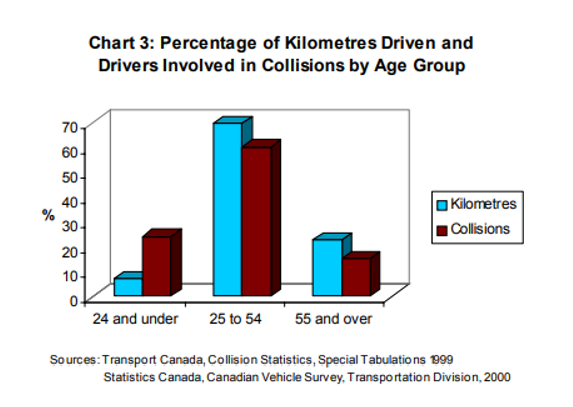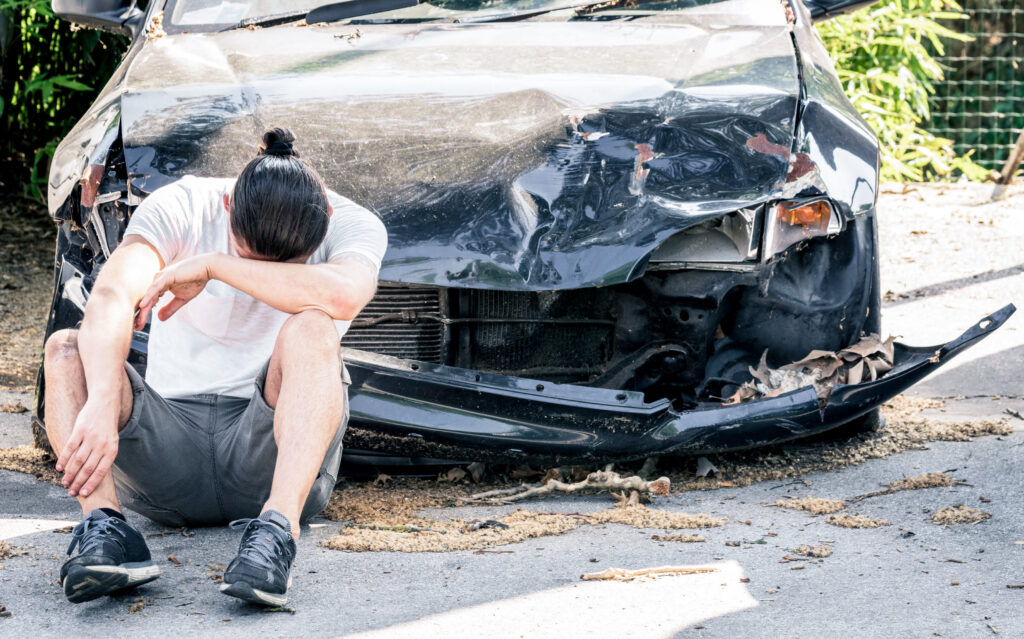Are Seniors The Most Dangerous On The Road?
Seniors who live and drive in Canada seem to be a target for being called poor drivers. Is this true? After some investigating, it seems they have all the characteristics of why they would be. Seniors are more susceptible to muscle and joint pain, vision & hearing impairment, possible dementia-related problems, slower reaction time, and last but not least the possible side effects of medications.
With all the possible tribulations that seniors must overcome to be safe drivers would you believe they are not the worse statistically for getting into accidents?
If you are a senior living in Canada and currently driving, this is your moment to stand up and take pride in that the numbers show otherwise to what is labeled online or otherwise. Do seniors get into accidents? Of course, all ages currently show that accidents occur within their age category. But to be considered the worst and most dangerous is not what the current statistics are showing.

If Not Seniors, Then Who?

Well, I travel the 401 in Ontario every day to and from work, my travel involves usually up to 1.5 hours each way even though I live only 48 km from the office. With that said, through my experience, I have never seen a senior driver involved in street racing, lane shifting at high speeds, or knowingly being disrespectful to other drivers for driving the speed limit.
Don’t get me wrong, this does not mean it never happens but I have not been witness to it. In most cases, the culprits are from the younger generation. My guess would be in the 18 – 25 year range. In my opinion, this would be more dangerous than a senior driving below the speed limit or taking an extra few seconds to accelerate after a green light appears.
Listen, this is not an article intended on bashing against young drivers, old drivers or any specific gender or race. Each category of drivers have documented speeding, DUI (Drinking under the influence) and other infractions including falling to properly come to a complete stop at a stop sign at some point.
For the most part, we have all started driving at a young age and built up experience, good habits, bad habits and have seen the same with our fellow drivers.
How To Collectively Help The Driving Experience Together
No matter the age, gender or race of a driver, if we all participate and do our part on the road it will severely impact our safety and other drivers safety on the road. In my experience of driving for 36 years in Canada, here are the most important rules to live by on the road.
- Experience
- Patience
- Decision Making
- Following The Rules
So many other factors may be listed above, however these are the most important that I do my best to live by.
Experience: Always learn and gain experience where needed. This could be learned on the road as well as off the road. We tend to keep speed limits and stop signs in our memory bank and rely on them when commuting. This can be a good thing but at times can alter our driving habits if we become too comfortable. Learn to read signs and the ability to see them when needed. As an example schools, hospitals, parks and residential areas will most likely have reduced speed limits due to the abundance of children at play or other factors.
Patience: Do your best to respect other drivers on the road and stay patient. So many bad mistakes happen when we are impulsive on the road because this brings us out of our element and safety circle. Getting upset because a driver ahead is driving the speed limit or taking a few extra seconds at a stop sign or turning green light should be avoided at all cost.
Decision Making: One of the most important rules to live by when driving is making the best decisions and completely avoiding the fatal ones. Anything that can alter your decisions when driving should be avoided at all costs. Never use drugs or aclohol prior to getting behind the wheel. Another example of bad decision making would be to avoid driving severely over the speed limit simply because you are running late. Remember, you are not the only one on the road and anything you do can impact many lives around you. This includes other drivers, pedestrians and animals.
Following The Rules: Rules are the most important way to help keep drivers as safe as possible while keeping everyone on the same playing field. As an example: Knowing someone will not deliberately drive through a red light can offer peace of mind and give confidence to other drivers while passing through a green light. Can we absolutely depend on rules 100%? Unfortunately, accidents will happen and for that reason they are called accidents.
Protecting Yourself & Others Around You
Anticipating what other drivers may or may not do can become overwhelming and seemingly impossible. Let’s face it, it is next to impossible to control what other drivers will do at any given time. With that said, it is important to understand what we can do ourselves and how we can make a positive impact on driving rather than a negative one.
In conclusion, please be courteous, respectful to the drivers around you. Avoid ROAD RAGE at all costs. I have seen some minor issues become dangerous very quckly just because of a difference of opinion. When road rage occurs it seems that all safety conditions are lost and forgotten. The more you contribute to this problem will increase your chances of becoming unsafe from the other driver and possibly all other drivers around you and the rager.
Senior Protection fully supports the following organizations and what they stand for:
- MADD Mothers Against Drunk Drivers
- Road Safety In Canada
- Young Drivers
- Canadian Centre On Substance Use & Addiction
- CPSAC Child Passenger Safety Association of Canada
- CARSP Canadian Association of Road Safety Professionals
Stay Safe At Home !! Stay Safe On The Go !! Stay Safe While Being Active !!
Contact Senior Protection Today & Choose Your Level of Protection, Call Now 1 866 416 0838

